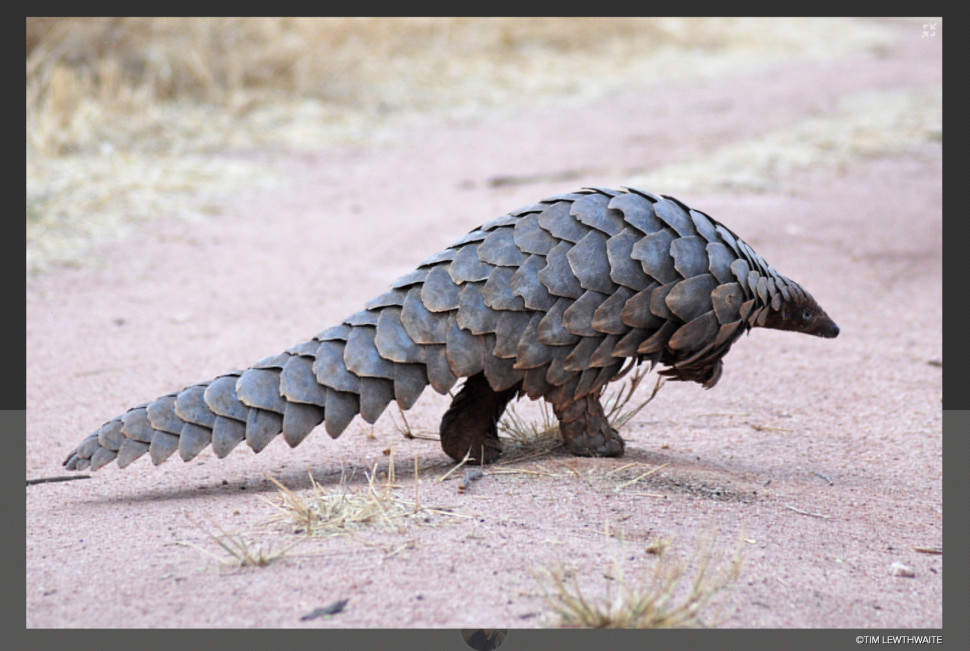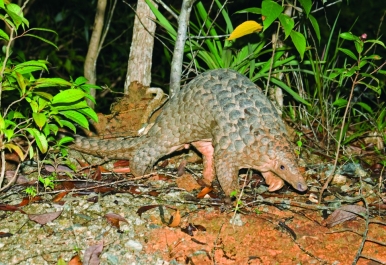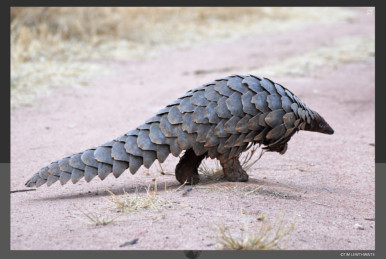WCS Malaysia sounds the clarion call for the world’s most trafficked wildlife

It is often referred to as an anteater and mistaken for a reptile, but perhaps the most surprising and disappointing fact about the pangolin is that it is the world’s most trafficked wildlife. The dubious distinction may come as an eye-opener given its low profile compared to say, the tiger or elephant, but there are people who mistakenly believe that a bowl of pangolin foetus curry will do wonders for their manhood.
Aside from their meat, pangolins are also coveted for their scales and its derivatives because of their supposed medicinal properties – a notion that has been debunked by scientific studies. “The scales are made of keratin, which is the same substance as our fingernails and rhino horn,” says Dr Melvin Gumal, director of the Wildlife Conservation Society Malaysia Programme. “So if they want to improve their libido and get good health, these people should just eat their own fingernails.”
The massive amount of pangolin meat and scales uncovered during seizures indicates the huge demand for these mammals. In March and July 2008, approximately 24 tonnes of frozen pangolins were seized in Vietnam and 14 tonnes of frozen pangolins were seized in Indonesia, respectively. Nine tonnes of frozen pangolins were seized in the Philippines in December 2012, and in China, a haul of frozen pangolins weighing 10 tonnes was seized in April 2013. Just earlier this year, Thai customs police confiscated a shipment of three tonnes of pangolin scales at the Suvarnabhumi Airport in Bangkok, and in July, eight tonnes were seized in Malaysia’s Sabah state. It is estimated that a tonne of scales is equivalent to 2,000 dead pangolins.
Despite being the most traded animal on the planet, little was known about the pangolin, so a few years back, WCS Malaysia partly funded a study on pangolins in Singapore, the country where protection has meant a high density of them living in the wild. “This was because nobody hunted pangolins there as strict laws are enforced,” says Dr Gumal. “The researcher put trackers on the pangolins and we tracked them to near a golf course and close to an Ambassador’s residence.”
The objective was to learn more about pangolins and gain an understanding of the issues behind their increasingly precarious status in the wild. When the results of the study were published, it paved the way for more knowledge to emerge about pangolins throughout the world. “It was extremely useful because there was a dearth of information about pangolins and people didn’t know what was going on,” says Dr Gumal. “After that, information started coming out about African pangolins and a couple of workshops centred around that study were organised.”
Due to their status, pangolins are considered a keystone species and are integral to further comprehending the overall issue of wildlife trafficking. Given the epic scale of the problem and its extensive reach, collaborative efforts are needed to come up with measures and actions to address the global trade in wildlife. In June, Malaysia Airlines signed the Buckingham Declaration, demonstrating the company’s commitment to help stem the tide of wildlife crime by preventing the use of its aircrafts to illegally transport endangered animals. It is also working with conservation groups to educate and train its staff to prevent wildlife crime.

“There is a lot of interest to stop this (wildlife trafficking) because it is also a crime that funds many nefarious activities,” explains Dr Gumal. “For example in Africa, wildlife trade funds terrorism so if they can find a way to plug this tap, it will help them address a bigger problem as well.”
It won’t be easy as the global wildlife trade is steeped in tradition going back centuries and animal species are sought for a wide range of reasons, including food, medicine, fashion, decoration, and prestige. “We do work with traditional Chinese medicine practitioners who are looking for alternatives, but there are also those people who want it (wildlife) just for the sake of showing off,” says Dr Gumal. “The more rare and endangered the animal, the better, because it shows how powerful they are to be able to procure it and serve it to their guests for dinner. And then it becomes a trend that seeps down to the general population.”
However, WCS Malaysia organises and participates in a number of activities every year such as art and culture exhibitions, fun runs, and blood donation drives to raise awareness about wildlife among the public. While they are cognisant about tigers disappearing from the wild and elephants being poached for their ivory, the plight of the pangolins has been lost on the general population. “They didn’t know that there was this quiet creature disappearing out of sight,” says Dr Gumal. “So conservationists decided, let’s highlight this secretive animal that nobody cares about.”

If the recent phone call WCS Malaysia received is anything to go by, people are starting to care about the ambiguous looking mammal. “A mechanic called to let us know that a pangolin had wandered into the engine of his car. He said we need you to help us with this animal. If we’re not careful, it’s going to get eaten, so please come.”
When Dr Gumal saw the pangolin, which had been placed in a little container, it had rolled itself into a ball. “The animal was really cute. Its eyes were watching us as if it was saying, okay, what are you guys doing?” he laughs. “The moment we put it on the ground and released it, it immediately ran up a tree.” Back to where it belongs out in the wild.





